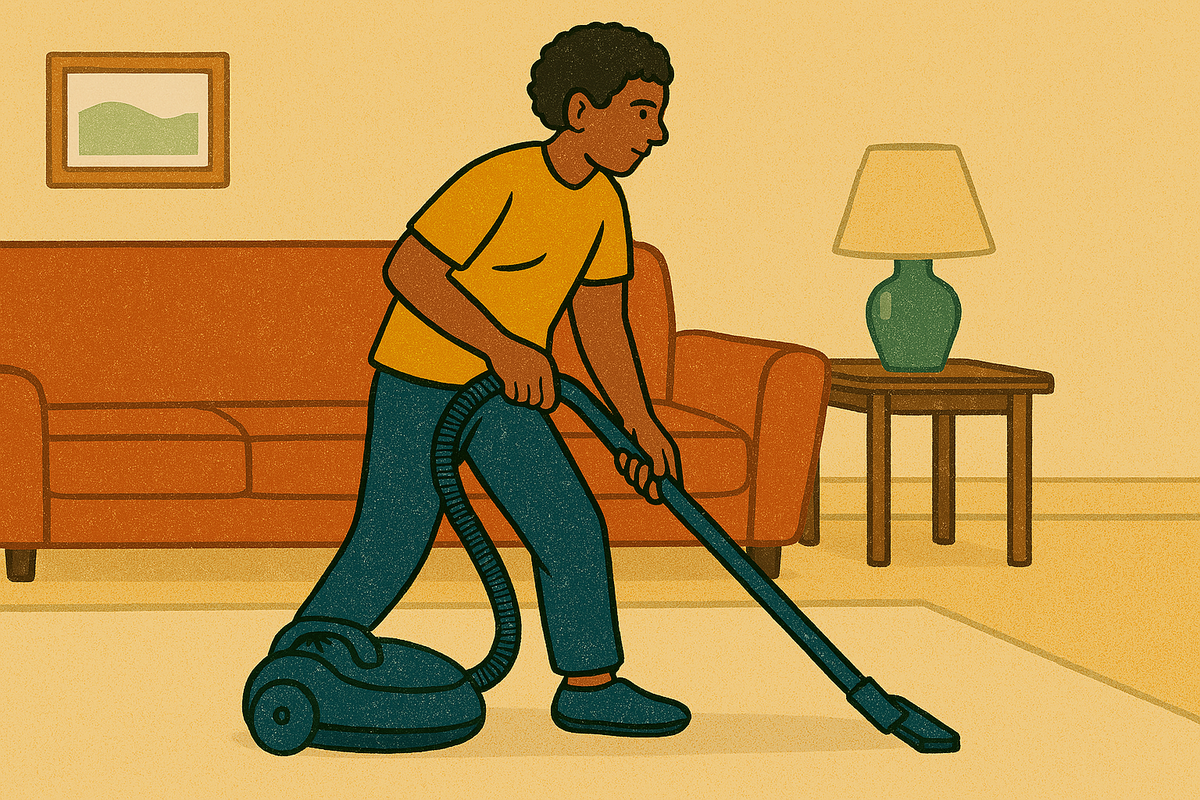
New Research Shows That Even Light Activity Can Reduce Frailty
We all know that exercise is good for us, but what if we told you that even small amounts of movement—like walking to the mailbox or doing a little housework—could significantly lower your risk of frailty as you age? Sounds pretty doable, right?
A new study published in the International Journal of Behavioral Nutrition and Physical Activity by Keating et al. (2025) looked at how different levels of physical activity affect frailty over time. The results? They confirmed that any movement is better than none—and even a little bit can go a long way in keeping you strong and independent.
What Is Frailty, and Why Should You Care?
Frailty isn’t just about feeling tired or getting slower with age. It’s a real medical condition that increases your risk of falls, illness, and even hospitalization. Think of it as a slippery slope—when muscles weaken and energy levels drop, everyday activities like climbing stairs or carrying groceries become harder. But here’s the good news: movement is medicine when it comes to reversing or preventing frailty.
The Study: What They Found
The research team followed a large group of adults over time to see how their activity levels affected their risk of frailty. They categorized people into three groups:
- Inactive – People who did little to no physical activity.
- Mildly Active – Those who moved at least once a week but not at high intensity.
- Moderately Active – Individuals who regularly did moderate or vigorous activities like brisk walking, biking, or even dancing.
Here’s where it gets interesting:
- Even those in the mildly active group saw a significant reduction in frailty risk compared to inactive individuals.
- People who went from inactive to active—even just a little—reduced their risk dramatically.
- Those who did at least one session of moderate activity per week had the best protection against frailty.
What This Means for You
You don’t have to become a marathon runner to keep frailty at bay. The research shows that any movement helps, and it’s never too late to start. Here are a few easy ways to incorporate more activity into your routine:
- Take the stairs instead of the elevator.
- Go for a short walk after meals.
- Dance while cooking (yes, it counts!).
- Do some light stretching or bodyweight exercises while watching TV.
- Try a weekly yoga or tai chi class to build balance and strength.
Final Takeaway
The bottom line? If you want to stay strong and independent as you age, move more—no matter how small the effort may seem. Science backs it up: every step, squat, or stretch counts. So, whether you’re lifting weights, chasing after your grandkids, or just opting for an extra lap around the grocery store, know that your future self will thank you for it!
This study was published in the International Journal of Behavioral Nutrition and Physical Activity by Keating et al. (2025). Read the full research here: IJBNPA Study.
Discover More
- Does Swearing Make You Stronger? the Surprising Science Behind Cursing and Performance
- Power Up Your Performance With Probiotics: How Gut Health Could Be Your Secret Weapon
- Move Your Mood: How Exercise Lifts Depression and Anxiety During Menopause
- The Weekend Warrior vs. Regular Exercise: What's Best for Slowing Down Your Biological Clock?
- Can Creatine Save Your Workout When Cutting Carbs?
- Carnivore Diet for Athletes: Do You Need Carbs After All?
- Mix It Up! How to Combine Cardio and Strength Training for Maximum Results
- Rocking Your Walk: How Unstable Shoes Could Strengthen Your Feet and Improve Your Balance
- Trail Running Safety: Navigate the Path to Injury-Free Adventures
- Tech Your Way to Better Fitness: How Older Adults Are Using Digital Tools to Stay Active
- Rest Periods Matter: Finding Your Sweet Spot for High-Intensity Sprint Training
- Supercharge Your Jump: How Adding Bands to Your Deadlift Can Boost Performance
- Caffeine Before Exercise: Is Your Pre-Workout Cup of Joe Actually Helping You Burn Fat?
- Paws-Itively Perfect Exercise: How Your Dog Can Be Your Best Workout Partner
- The Long and Short of It: How Pole Length Can Boost Your Cross-Country Skiing Performance
- Time-Restricted Eating: Get Leaner Without Losing Your Gains
- Boost Your Strength & Shed Fat: Essential Amino Acids + Resistance Training
- Finding Your Perfect Fit: How Footwear Affects Performance and Injury Risk
- HIIT vs. Moderate Exercise: The Mood Rollercoaster Your Workout Takes You On
- Hydration Hype: Do Specialty Drinks Boost Exercise Performance? See more
